“Sleep is that golden chain that ties health and our bodies together.”
~ Thomas Dekker
The Effects of Skipping Sleep
So, you’ve made your bone broth, kombucha, meat patties, and roasted vegetables for the week. You’ve prepared your kids’ lunchboxes and helped them with their homework. After they go to bed, you steal some yoga time, trying to quiet your mind in preparation for bed. But then you suddenly remember your daughter’s class is having a birthday party, and you forgot to make a paleo cupcake for her to eat. You sigh, stand up from downward dog, and head back into the kitchen to whip up some cupcakes, eating two yourself before heading to sleep after midnight. You have to get up in six hours to run errands before work, and as you lie there willing yourself to fall asleep, the task seems impossible. You soothe yourself by remembering that the grandparents are taking the kids for the weekend, so you can catch up on your sleep then.
Sound familiar? Maybe you don’t have kids, but you have a job that requires you to work long hours, or you’re in school yourself with an ever-growing list of homework. How many of us try to squeeze extra time out of the day, by staying up late or getting up early? We sacrifice sleep, because in American culture, we don’t value it. We consider it unproductive time, but we’re wrong.
When it comes to reversing autoimmune disease, sleep is as important to our health as diet, and it might be the key (or the obstacle) to remission. Research also shows that we can’t “catch up” on sleep over the weekend. It feels like we can, because we’re less tired after a couple of good nights’ sleep, but on a cellular level we haven’t recovered.
There are many studies connecting poor sleep to inflammation, but let me highlight a recent one. Published in the scientific journal PLOS ONE in 2013, the study showed that short nights of sleep affect the expression of 117 different genes, turning on genes that increase inflammation and stimulating the immune system into a defensive mode. That sounds like a setup for autoimmunity, doesn’t it? They also found that two nights of recovery sleep weren’t enough time to reverse all these changes, leaving the body in a chronic state of inflammation and immune activation.
I know. You want to know how on earth you can find time for extra sleep. Don’t I know how busy you are? I won’t lie to you – it’s not easy. I personally found it harder to change my sleep habits than my diet. With autoimmune disease, though, we can’t turn a blind eye to the effect sleep has on our health. Simple math tells us that sleeping longer means fewer waking hours, and that means we have to do less, say no more often, and be as efficient as possible in our waking hours.
How To Sleep To Reduce Inflammation
- Get on a regular sleep schedule. This is the most important thing. You need a minimum of 7 hours sleep every night without exception, and 10 hours is even better. Set your alarm for the same time every day, and also start going to bed at the same time every night.
- Start preparing for bed an hour before bedtime. It takes that long to wind down, gather what you need for the next day, and finish up what absolutely needs doing.
- Limit your screen time, especially in the evening. Computers, phones and TV eat up more time than anything else. You’ll have more time for sleep, and you’ll also sleep better without the blue screen light exposure that stimulates wakefulness.
- Get outside during the day. This activates healthy circadian rhythms, essentially letting your body know when it’s daytime, so you’ll naturally get sleepy at night.
- Do what’s necessary to make your bedroom as conducive to sleep as possible: a white noise machine, blackout curtains, a comfortable temperature, and a comfortable bed.
- Do something relaxing before you go to bed: meditate, take a bath, turn down the lights and listen to soft music, or drink a cup of calming tea.
- If joint pain keeps you awake at night, consider extra pillows. Hugging a pillow takes the pressure off your shoulders, and a pillow between your knees takes the pressure off your hips.
- Read this book and set yourself a sleep challenge: If you’d like to learn more, the ebook, Go to Bed, by Dr. Sarah Ballantyne brings together all of the research connecting sleep to our health. It also includes 14-day step-by-step plan to establish a healthy sleep pattern.
Still struggling with insomnia? Here are some additional resources:
A version of this post originally appeared in my column in Paleo Magazine.
Credit: image at top of page from Wikimedia.

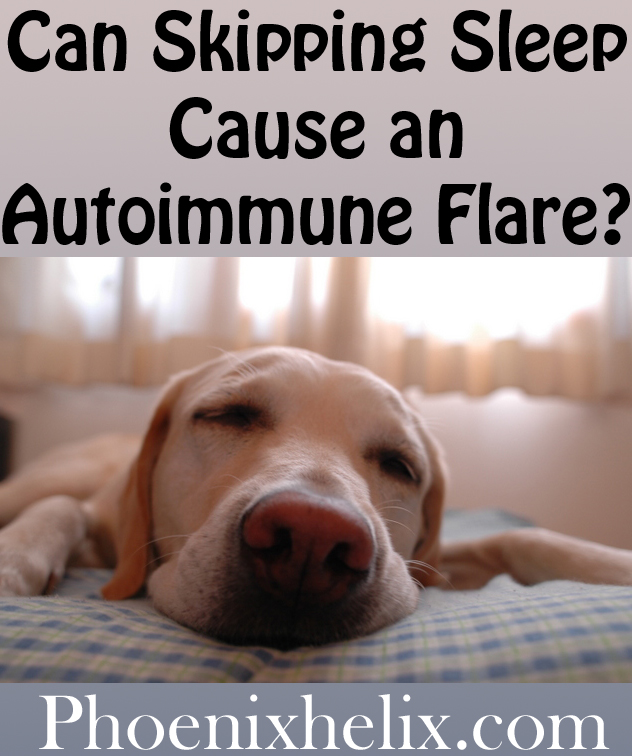

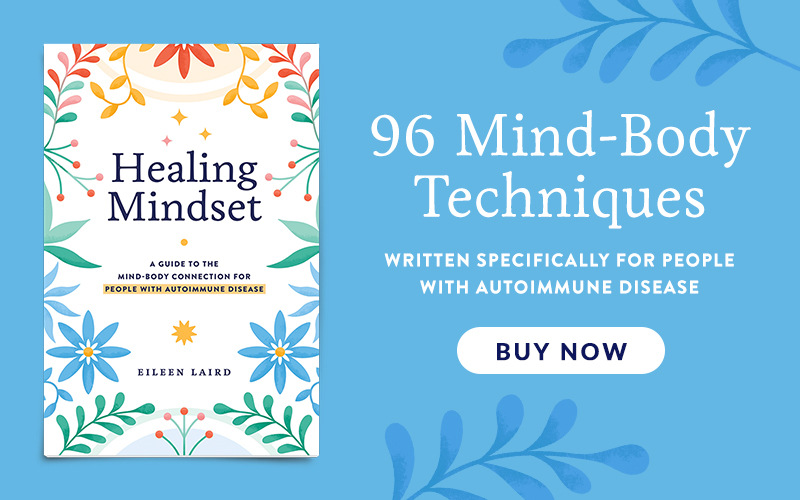
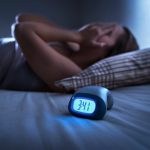
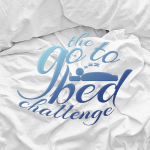


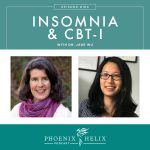
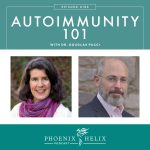

I had Graves Disease and had my thyroid abated 27 years ago. Insomnia has been an ongoing issue since and I have always required some sort of prescribed sleep aid to sleep, presently Ambien for several years. Any suggestions on how to remove the Ambien and introduce other options to get me into a “natural” healthy sleep pattern?
Hi Cindy. I’m not qualified to guide you there. That’s beyond my expertise. Have you considered consulting with a functional medicine professional? My guess is you’re going to have to slowly taper off the ambien, and there will probably be some trial and error with supplements until you find something that works. And circadian rhythm entrainment will be essential, too. I recommend Evan Brand. He’s an expert on restoring healthy sleep patterns. I definitely think it’s a great goal to find a replacement, if you can.
Thanks. Very good article.
May you or someone suggest me a good sleeping-aid supplement???
Hi Yohan. The goal is to address insomnia from the root cause, by balancing our circadian rhythms. I’m not a doctor or a nutritionist and therefore can’t prescribe supplements, but I personally take Natural Calm Magnesium before bed. It has a mild relaxation effect, and magnesium is one nutrient that’s hard to get through food alone.
Thank you for the very informative article. I have mixed connective tissue disease, my daughter who is 26 now was diagnosed with JRA when she was five and my sixteen year old was just diagnosed with Sjgeorens Syndrome. Our family is devastated over yet another autoimmune diagnosis in our family. I was concerned about how long my teen was sleeping but feel that ten hours seem to be more beneficial to her:) Thsnks again for the informative article.
I’m so sorry, Darlene. I don’t know if you’re aware of my podcast, but I recently did an episode called When Your Child Has Autoimmune Disease. I think it will resonate with you. Wishing everyone in your family healing, and yes, the more sleep the better!
Thank you for your response Eileen!
Hi Eileen,
I am only a few days into AIP and my joints are experiencing mini flares. They weren’t before I started. Is this normal? I don’t think my sleep has changed significantly (It hasn’t been great for the last year) so I am wondering if being on AIP diet could have triggered it. My other thought is that I started on my elliptical this week at a lower pace. Could a low intensity workout cause a flare? I appreciate any advice you have. Thank you!
It’s very unlikely that the AIP is causing your flares. If you have autoimmune disease, your immune system has been revved up for a long time. It also takes a long time to reverse that process. It’s normal to continue to flare as you heal. You can expect your flares to slowly diminish in number and intensity over time, and hopefully go away altogether, but that won’t happen overnight. For me, it took a year for my flares to disappear completely. Remember, you’re in this for the long haul – it’s about transforming your life, and it’s worth the time investment. You could experiment by stopping the exercise, to see if it could be your new workout, or it could just be that you haven’t had enough time for you body to begin healing.
Thanks, Eileen. I appreciate the encouragement. That’s a good idea – I’ll check out one of the consultants.
Thank you for the compassionate reply. 🙂 I’ve been in kind of a dark place b/c I’ve been doing AIP very strictly (have not cheated at all, not once) for 5 months and have not seen ANY improvements in my AI symptoms. I’ve been keeping a symptom journal, as you suggested, so I track things. I’m really struggling with whether or not to continue, as it is a big sacrifice to follow the diet so strictly – takes a lot of time, is very isolating, etc.
I understand why you feel discouraged. Don’t give up, but at this point, I recommend some troubleshooting. Have you considered The Paleo Mom Consulting? They’re all AIP experts. If you click on the photos, you get a bio for each practitioner and can choose to one who resonates with you.
Reading about sleep just makes me feel discouraged b/c one of the biggest symptoms of my autoimmune disease (Hashimoto’s) is insomnia. So I can’t heal unless I sleep, but I can’t sleep because I haven’t healed yet. Lose lose.
I can relate to how you feel, because when my RA was at its worst, my joint pain kept me awake. Sleep was always interrupted and relatively short. However, as I healed, I was able to sleep better and heal more. So, it’s not lose lose. Work on the areas that you can right now – like diet and stress management. Then, as you get better, your insomnia should slowly disappear and you can focus on sleep. That’s what I did. I didn’t focus on sleep until my second year of healing. We don’t have to be perfect on our journey to healing. Just do the best you can.
these are the sorts of articles that tend to worry me a lot. I get very little sleep, often averaging 5 hours of broken sleep per night. Unfortunately, none of your suggestions will help as there is nothing there that talks about how parents of children with disabilities get sleep when their kids have seizures every night, without fail. It’s often hard to get back to sleep after each one and more so knowing that you will be woken again in just a matter of time. What suggestions do you have for those of us who are possibly never going to have an opportunity to reach that magical 8-10 hours of sleep each night. Is there anything at all we can do to ‘catch up’ or are we always destined to be chronically sleep deprived and at risk for autoimmune disease?
Mark Sisson wrote an excellent article about this issue. He talks about the effects of poor sleep, and what you can do to counteract it, until you are able to sleep well again. I know that right now this pattern feels like a life sentence, but I’ll hold hope for you that the health of your child (and therefore yourself) will improve. Gentle hugs to you, Melissa. Just do the best you can. You are already a wonder woman in my eyes.
Thanks Eileen. I will look at that link. Every little bit helps.
Thank you so much for this article! It was a great reminder of just how important sleep it to our health. It can be a challenge when you’re first getting into the habit of making your sleep a priority and the tips you gave are great! One of my New Year’s resolutions was to start shutting the screens off one hour before I wanted to be going to bed and this was just extra encouragement I needed to make sure I kept it. I also wanted to add that both my husband and I both noticed a significant improvement in the quality of our sleep when we started taking a magnesium supplement (I know supplements aren’t always all they’re chalked up to be, but in this case we found a great benefit).
I’m happy to provide the encouragement. Thanks for sharing the tip about magnesium; it’s a good supplement that most of us need, and you’re right that taking it before bed gives you the added sleep benefit. Sweet dreams, Rheagan!
Thank you, Eileen, for this helpful and very timely (for me) post. I’ve had a painful reminder recently of how important a factor sleep is for me in my health journey with RA. I have been on the AIP for 4 1/2 months (you and your blog have been a huge inspiration to me, and I have benefited so much from your recipes and tips- THANK YOU!) I have had RA for 26 years and have been on Enbrel and methotrexate for 15 years. Normally I have little or no RA symptoms while on these meds, so it is a bit difficult to tell whether the AIP was having a beneficial effect on my RA. But I was feeling hopeful about it because my energy levels were even higher on the AIP than they’d been on standard Paleo and a chronic skin condition also cleared up since I started the AIP. Overall, I was feeling very good and very encouraged that some deep healing was going on. Going into the holidays (which are always stressful for me) and the end of my school semester (I recently started a master’s program in nutrition), I knew I would need to prioritize sleep and stress management, as well as stick to the AIP, to maintain my progress. But despite my good intentions, the last couple of weeks of December found me staying up too late studying or preparing for the holiday, and skipping my meditation (just when I needed it most!). A couple of days after Christmas, I had a mini flare of my RA in the form of a very inflamed and painful index finger, despite the fact that I was still on all my meds and doing strict AIP. I was so discouraged I wanted to cry. But I decided that this was a lesson for me about sleep, not a judgment on the benefits for me of the AIP (which I am continuing). My mini flare was a reminder that I really needed to hear: for whatever reason, my RA is extremely sensitive to sleep deprivation and stress; although the meds have prevented me from having any major flares, I have long noticed increased joint pain when I have had a couple of shorter nights of sleep in a row. So, thank you for reinforcing this lesson for me. If I am going to give my body its best chance of reversing my long-standing RA, or at the very least, preventing other autoimmune diseases, I need to make 8-9 hours of sleep a night a non-negotiable part of my life. Thank you, again, for all you do.
Thank you so much for sharing your story, Linda. It makes the research “real” for anyone reading this article. Wishing you healing on every level!
I don’t have an autoimmune disease yet but had 8 months of chronic back pain which they diagnosed as degenerative back disease until I found your blog and switched to the AIP diet. The only successful re-introductions I’ve had in the last 6 months are onions and garlic. This article has opened my eyes to the possibility that the breakouts on my arms and legs could also be sleep related. Thank you for all the information you share here.
My pleasure, Anna. Yes, our lifestyle has such an impact!
Fantastic post, Eileen. I say I “guard my sleep at knife point” – just so people know how serious I am about it 😀 Unfortunately when my husband is out of town or working overnight that’s when my sleep is at its worst. Try as I might! I’ll try some of these tips that I don’t already do though next time 🙂
Let me know if the tips help!